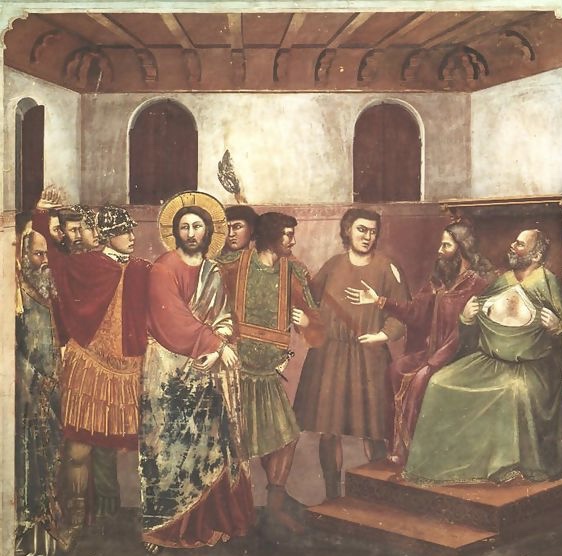St. Luke gives us this cryptic description of Christ’s arrest: “Now having seized him, they led him away to the high priest’s house; but Peter was following at a distance.” (Lk.22:54)
Peter was deeply in earnest when he said at the Last Supper that if everyone else denied Christ he would never deny Him. Peter’s high profession of loyalty and love partook somewhat of the nature of boasting. Doubtless, Peter knew his own weaknesses and he just had to make vows and assurances of fidelity in public and in a loud voice to convince himself. Such a mode of acting is the product and sign of a weak, unreliable character. I have heard of a little boat that carried such an immense whistle that it took all the steam to blow it, so, whenever it whistled, it stopped running. Peter was somewhat like that – he talked big, he boasted, and in doing, he stopped thinking about his own weakness and dependence on God.
When Peter saw the soldiers seize Christ and take Him away, it must have struck him how much easier it was to make vows and protestations of loyalty and fidelity in the heavenly atmosphere of the Upper Room than it was to make protestations amid the awesomeness of the Garden of Gethsemani and the excitement of the Judgment Hall.
But Peter was such a bundle of contradictions. It is worthy of note that Peter fled when Christ was arrested but then, soon after the senseless and useless panic, it appears that at least two of the Apostles rallied their wavering courage and came back to Christ. The two were John and Peter. Perhaps the courage of John served to strengthen Peter. Certainly on this occasion John’s zeal and courage outweighed Peter’s. John did his best to make up for his temporary defection by edging his way directly through all the obstacles into the very apartment where Jesus had been taken for trial. John “entered with Jesus. . . but Peter was standing outside the gate.” (Jn. 18: 15, 16)

To what may ascribe Peter’s initial flight? It may not have been simply the sudden fright of alarm but rather because of his piety, at that period of his history, was fashioned more by feeling than by principle. He was the man who grew ecstatic on the mount of the Transfiguration and proposed that Jesus and himself and others never quit that great place. No one can hope to stand firm in time of stress or opposition if his or her piety has been nurtured only in tender hours of emotional enjoyment. Christ Himself announced the basis for His friendship and service when He said: “He who does not carry his cross and follow me, cannot be my disciple.” (Lk. 14: 27) Peter failed because he placed too much confidence in his own strength, and he failed even more miserably when he abandoned the cause he had espoused.
Ask your self these questions today. Whom do you follow? The obligations you are under is to follow Christ closely and so learn from Peter’s plight that, if the consequences of following Christ afar off be so dreadful, what must be the consequences of not following Him at all?
One thought on “Thursday after the Third Sunday in Lent”